Abraham Lincoln (1930)
“Do you suppose there’s a human being who wants peace more than I do?”
|
Synopsis: |
|
Genres, Themes, Actors, and Directors:
Review: Abraham Lincoln has been somewhat unfairly maligned over the years — most notoriously by Harry Medved and Randy Dreyfuss in their book The Fifty Worst Films of All Time (1978), where the authors call out (among other things) the melodramatic acting style of Merkel (who they refer to as “very simply beneath contempt”): … the occasionally clunky dialogue (“Oh, Ann! I love you so!”), and the screenplay’s revisionist tendencies (i.e., Lincoln spouting part of his inaugural address before settling down to watch his final play at Ford’s Theater). However, Medved and Dreyfuss’s attack simply comes across as mean-spirited — as is their entire book, come to think of it. While Abraham Lincoln hasn’t dated all that well, and is far from accurate as a nuanced history lesson, it’s not nearly the clunker these authors claim it to be. Abraham Lincoln is primarily a victim of its own era — the transition between silent films and talkies, a time when few directors were getting things completely “right”. In addition, the episodic nature of the screenplay doesn’t do the subject any favors, with far too much material covered in too short a time. Huston does a fine job as Lincoln: … though I ultimately prefer Henry Fonda’s more introspective interpretation in John Ford’s superior Young Mr. Lincoln (1939). Redeeming Qualities and Moments: Must See? Links: |
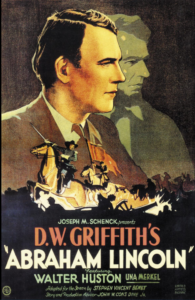
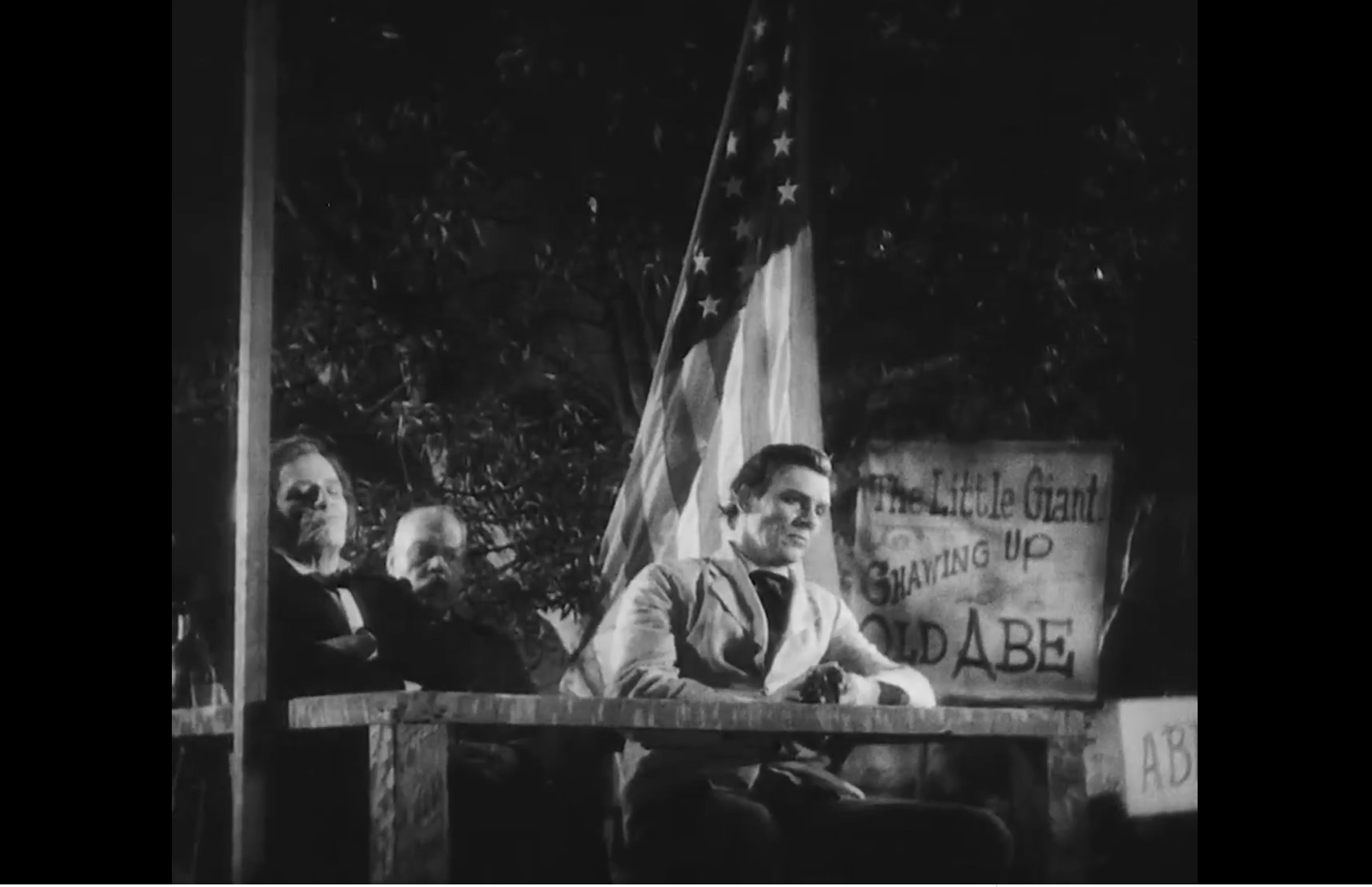
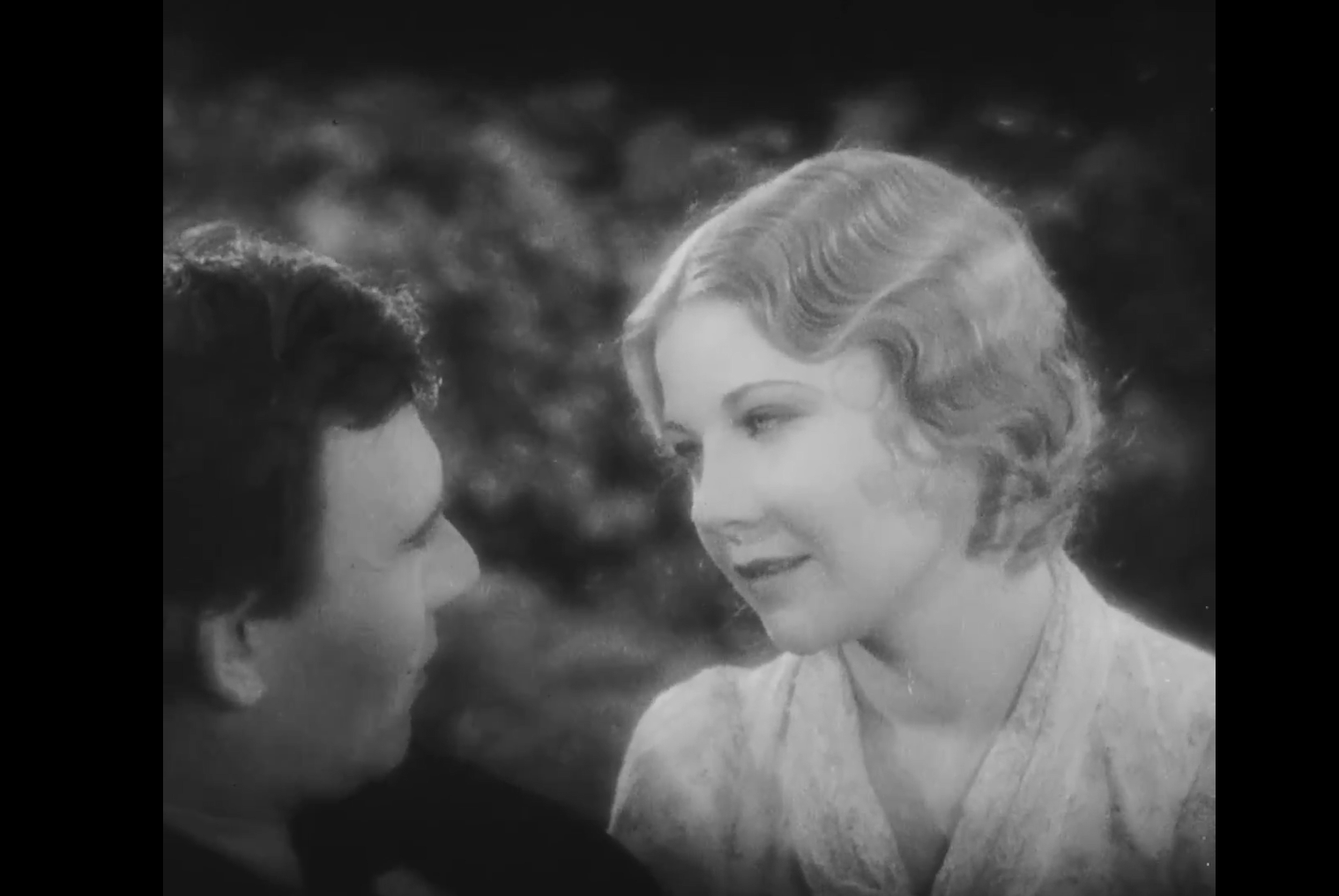
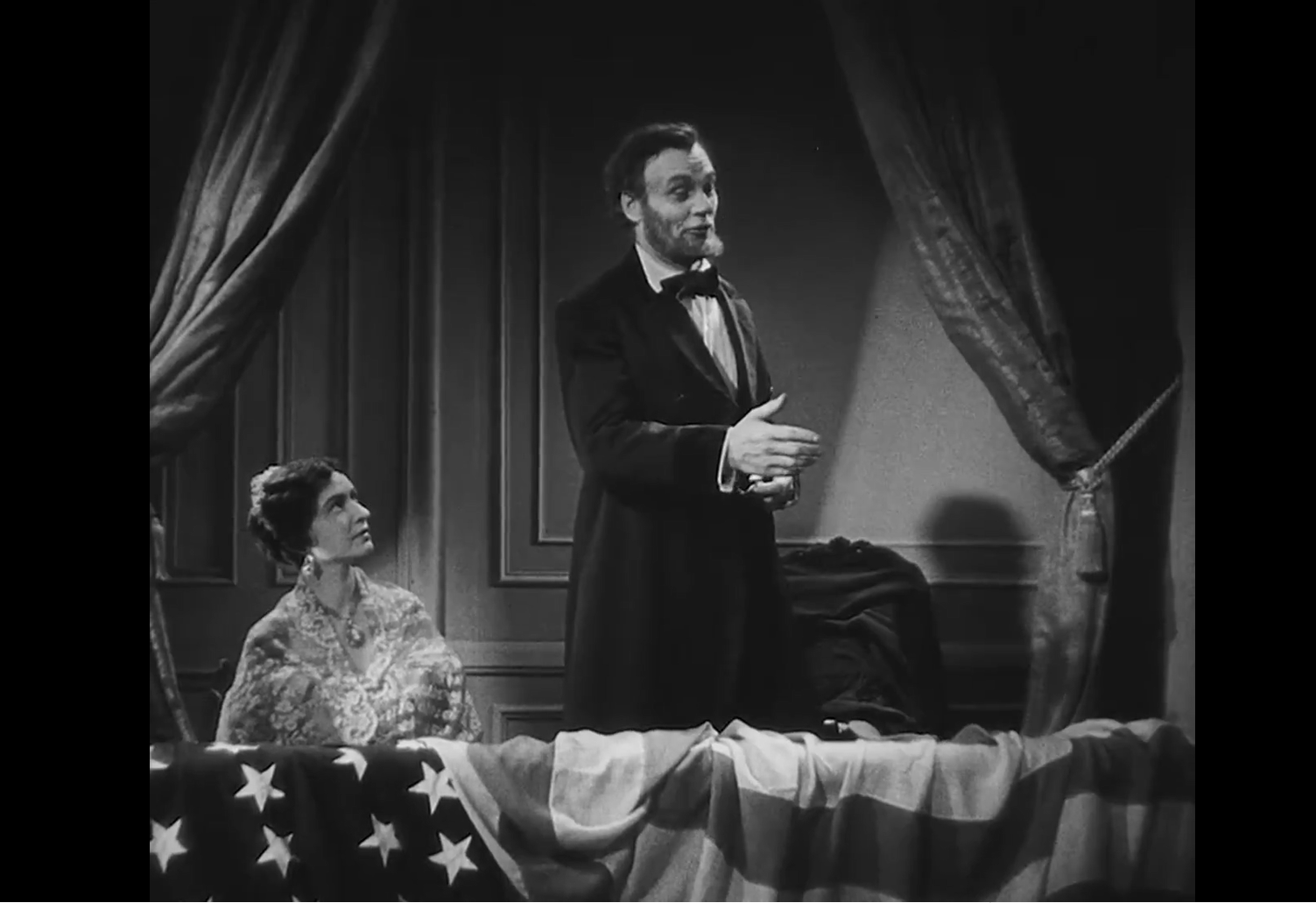
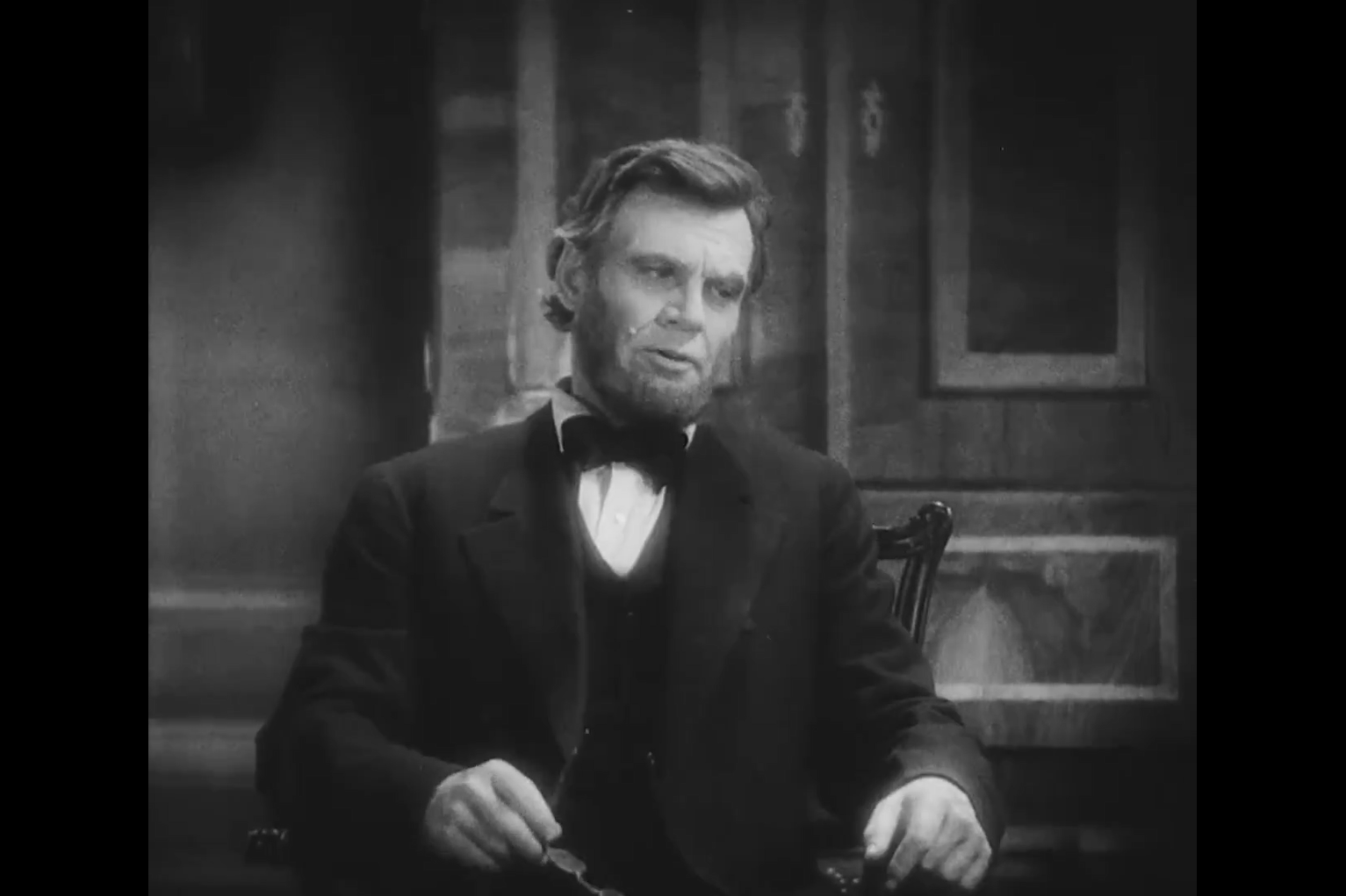

One thought on “Abraham Lincoln (1930)”
First viewing. Not a must.
While I won’t go so far as to put this among the worst films ever made…it’s still not very good at all and kind of a snail-paced snooze.
The main problem is the script, especially for the film’s first half – which appears responsible for making the overall production look and feel like an uninspired high school play. Much of the dialogue until midway is banal at best.
The latter half (though still with its hefty share of tedium) brings a bit more visual sweep due to war events.
Basically there wasn’t a whole lot that could have been done to pull this off well, considering what was there on the pages all involved were working with.
Agreed: Ford’s ‘Young Mr. Lincoln’ is the one to go with, without much need of comparing the two films.